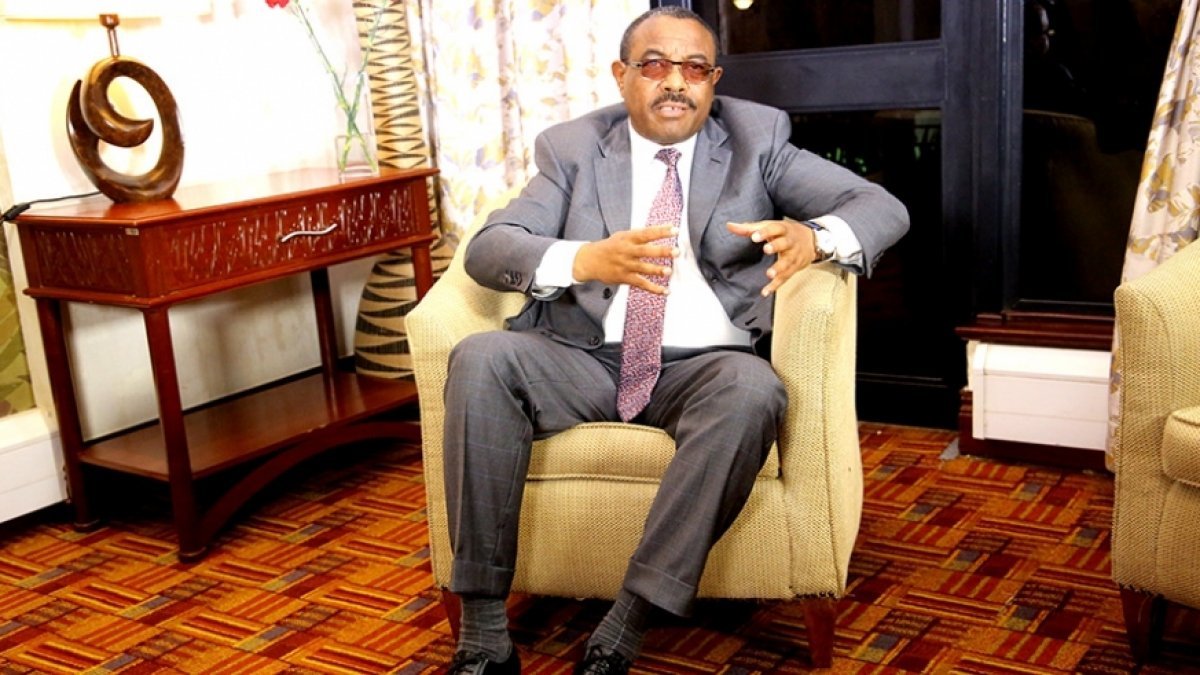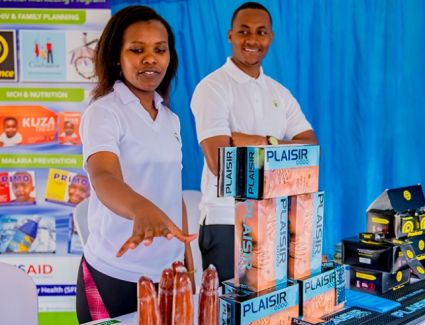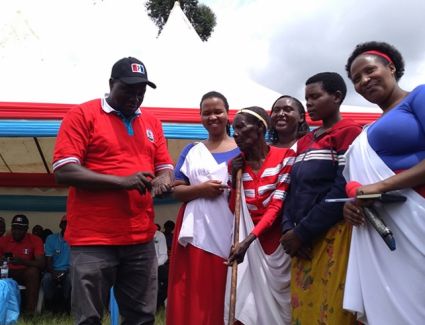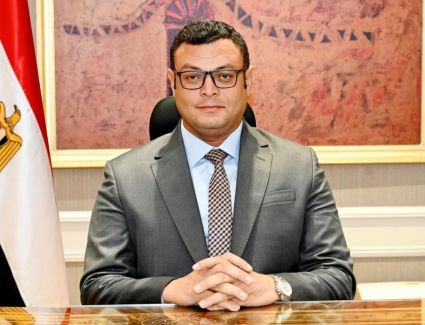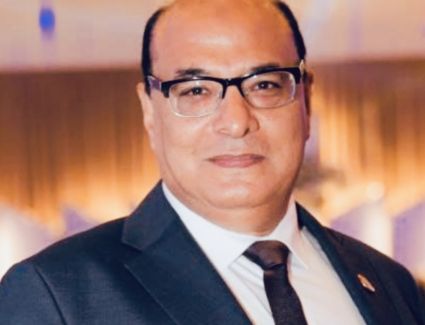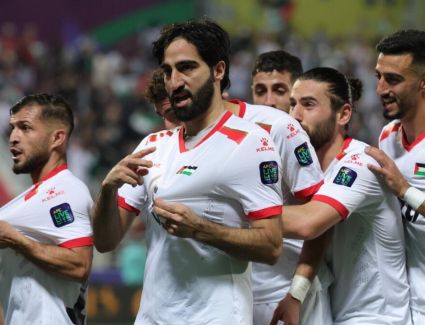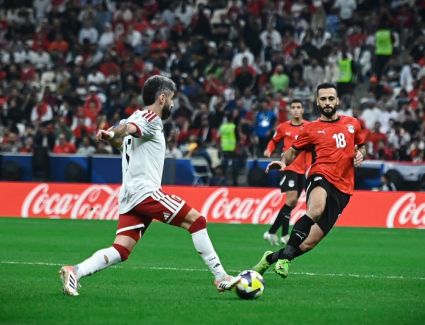As African countries seek solutions to feed their growing populations at a time characterized by unreliable weather patterns and climate change, there is debate as to whether genetically modified foods (GMO) are the solution.
The argument’s participants have been split on the GMOs ability to increase production while others argue that there are health risks that outdo the benefits.
The New Times’ Collins Mwai engaged former Ethiopian Prime Minister Hailemariam Desalegn who is the new Chairperson for the Alliance for a Green Revolution as well as chairperson of AGRF Partners Group, a partnership of institutions keen on Africa’s agriculture transformation.
Hailemariam gives insights to his priorities as the new chairperson of the body, key challenges as well as opportunities for the agriculture sector.
Excerpts below:
As new chairperson of AGRA, what are you making your priority business at the moment?
My priorities are based on the strategic plans by AGRA for 2017-2022. That plan has major deliverables but we also have to look at beyond 2022 to look at SDGs to achieve the goals that can enable sustainable development goals. We also have African Agenda 2063 under the African Union which I was involved in developing.
We have a pretty well-designed programme of what we have to deal with in the coming days. We have three major components in which we work in. We are building the capacity of African governments for Agriculture transformation. We are working with governments to address binding constraints that should be addressed. For instance one of the major challenges is the seed system where we need to have systems that ensure that farmers have quality inputs that boost productivity. We have to work on the entire value chain.
We help countries produce over 700 varieties of seeds to bring about the change.
The second one is the fertilizer system, African soils are so degraded and we need to understand the soil characteristics using the various technologies to be able to make meaningful intervention to ensure quality plant nutrition. With that, we can ensure that farmers have the best input for farmers. We have extension services that work alongside to support farmers. There are best-case examples in terms of provision of extension services that others can learn from. Scaling up this things will be important for me.
Another key aspects is the market system. As agriculture goes beyond serving subsistence practices, it’s important to have systems to link farmers to market with reliable information asymmetry systems.
To make most of these changes, we need partnerships with other stakeholders which we are constantly working at building.
My priorities also include climate change issues and challenges as well as using technology and innovation to modernize agriculture and boost productivity and harness the opportunities even in the midst of threats.
I am also keen on irrigated agriculture to avoid over-reliance on traditional weather patterns and boost productivity. If we go to high-value production, we also need to go beyond crops to livestock and fisheries.
There has been a debate for years now on whether or not we should start adopting Genetically Modified Foods as a solution to food security, where do you stand on the matter?
As AGRA, we feel that at this moment, we have a number of selected seeds that have come from research that are suitable for increasing the productivity of our farmers by double or triple scores.
First let’s finish the low hanging fruits with what is available for now. We have over 700 types of seed from our research that we can use in the meantime. But this also depends on individual countries and policies they follow. For now, let’s harness the opportunities we have to increase productivity on the continent.
What’s the status of food security in the region at the moment and what are some of the ways to improve it?
If we want to be food secure, we should not only look at production but buying food as well. Commerce is a way to improve food security. Where it’s not possible for crops to grow, you need to look at other options such as livestock, buy making a living from livestock and fisheries, you can be food secure by buying food.
Food security can be achieved if we look into and understand the challenges and opportunities, match them to bring about the desired status quo.
For example, in 2016, the Eastern African region was hit by the worst drought in 60 years, Ethiopia was able to manage this drought with our domestic resources and we were able to transport and buy and set up our own reserves.
The whole idea is having a countrywide resilience mechanism and household food security, combining the two, you can have resilience. That is however only possible if you have irrigation practices to boost your resilience.
Often, instances of drought or famine have been found to undo gains in poverty alleviation
Poverty should always be way below economic growth. You need at least 7 per cent economic growth such as is the case in Rwanda to reduce a country’s vulnerability. With that, the effect of famine will not be as much.
We have 5 years to go to the lapse of the deadline set in the Malabo Declaration to eradicate hunger, are we on track? Realistically are the targets achievable?
For the Malabo declaration, we had set out to eradicate hunger in five years from now. I think this is not realistic at this point. We however have to focus on the SDGs due in 2030 and have poverty eradicated and hunger brought down to zero.
If that is the case, we have to redouble our efforts and not business as usual. That is why we re-launched a new AGRF with a new methodology, a new momentum and it’s being hosted in Rwanda.
Rwanda has shown the best example in moving forward and after the bidding process, Rwanda has been selected by the AGRF Partners group simply because of its performance. That means if every country performs as Rwanda did and Rwanda redouble its efforts towards this goals, we can expedite the process.
One of the targets is to have at least 10 per cent of your budget allocated to agriculture. Many countries are below 5 per cent and there is need for further political commitment and hopefully, with the new AGRF format, we can change the momentum. In the new format, it’s not only an annual event but an annual process of engagements tackling a number of issues.
For instance, the requirement that countries should allocate at least 10 per cent of their budgets to Agriculture, what’s holding that back?
The top leadership in countries should understand that if we want to achieve economic growth, then we should focus on Agriculture which has up to 8 times efficiency in growing an economy and eradicating poverty. This has been proven across the world in places such as Korea, Asia, Vietnam and China among others. Our economic paths continue to depend on agriculture hence the need to invest in the sector.
We continue to see low private sector involvement in agriculture in the region, what could change this?
It is the small and medium enterprises that constitute 60 per cent of the economy. Taking that into context, we are going to create a supportive ecosystem for entrance of SMEs in Agriculture as well as the larger firms where necessary. Among the requirements for this is information asymmetry systems which can provide information on the best opportunities to engage in.
Everyone has to function by their comparative advantage. As we commercialize agriculture, we will need both the SMEs and large firms across the value chain to create the ideal growth expected.
With Rwanda as the new host of AGRF, what are the expectations from the country?
I am grateful to the Rwandan government and President Paul Kagame for expressing interest and bidding to be home of AGRF. They have supported us in many ways to host the institution in Kigali. This will help us having consecutive programmes which will be more effective in addressing the agriculture transformation issues on the continent. Going forward, Rwanda should also redouble its efforts for AGRF to become a success. We have enough targets to be pursued as well as scorecards to guide the process. If Rwanda achieves the targets, it will serve as an ideal example to other countries. The President has made a commitment to mobilize the government towards bringing about the desired change.
We now have 23 partners in AGRF and we are hoping to increase the number to about 35 before the next meeting in 2020, there have been a number of requests to join AGRF.


